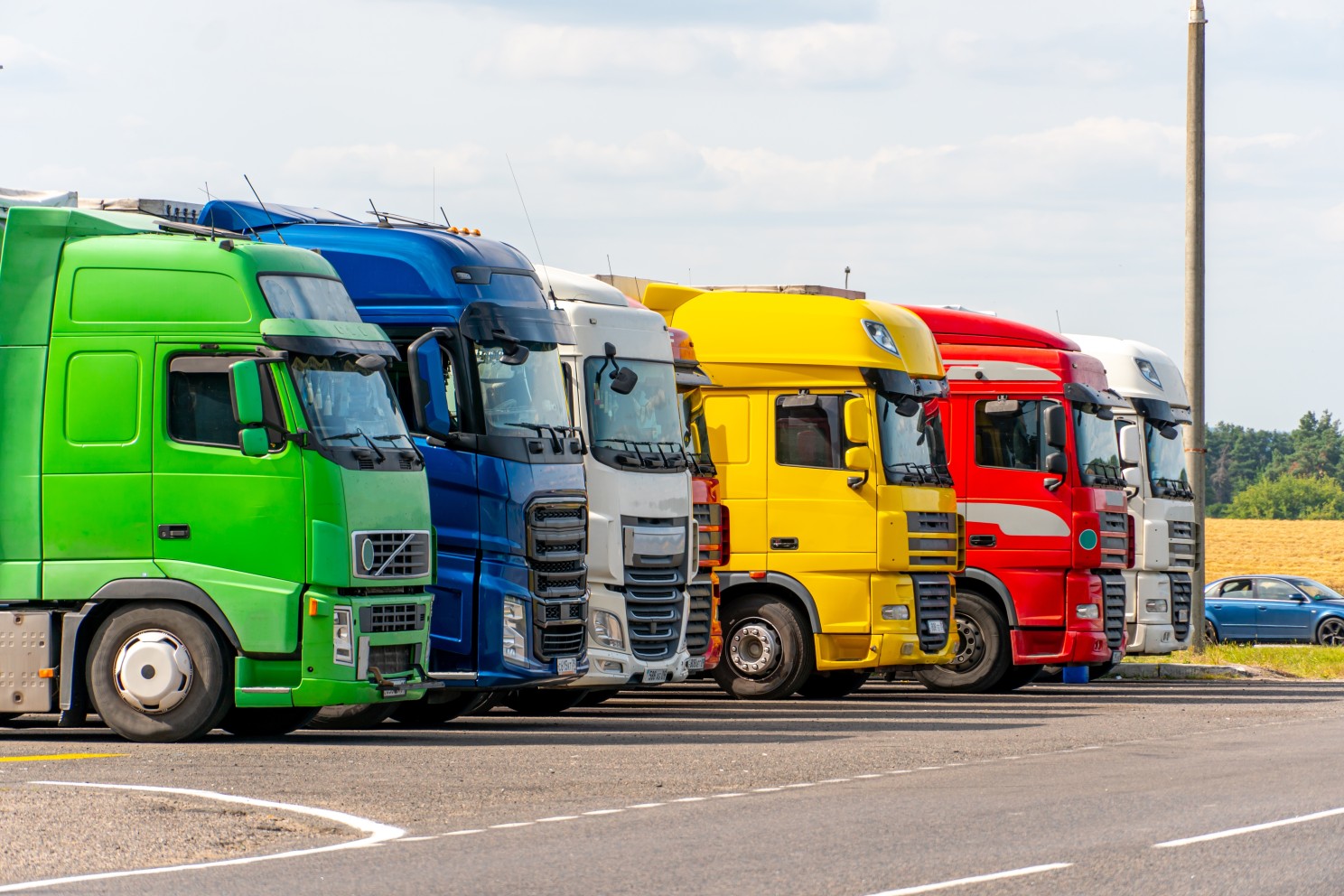
Susie Jones
Hoe de diversiteit van bestuurders in de sector aan te pakken
Gemaakt: 21-08-2024
•
Bijgewerkt: 21-08-2024
Als we je zouden vragen om een vrachtwagenchauffeur te beschrijven, zou je antwoord een stereotiep beeld kunnen schetsen van een oudere, blanke man. Is dit juist? Van oudsher wordt de vrachtwagenindustrie gedomineerd door mannen. In de loop der jaren is de sector diverser geworden en hebben vrouwen, mensen van verschillende leeftijden en achtergronden de kans gekregen om aan de slag te gaan. De diversiteit neemt toe, maar externe uitdagingen zoals Brexit en de pandemie hebben dit stunted.
Vrouwen in de industrie
Ondanks een tekort van 100.000 vrachtwagenchauffeurs in het Verenigd Koninkrijk, is slechts 1% tot 3% van de vrachtwagenchauffeurs vrouw. Waarom tekenen er dan niet meer vrouwen voor een leven op de weg?
Veiligheid: Naar schatting 60% van de vrouwelijke truckers heeft zich wel eens onveilig gevoeld tijdens het werk. Velen hebben aangegeven dat ze onder een lamp moeten parkeren, hun stops moeten plannen en pepperspray bij zich moeten dragen.
Techniek en uitrusting: Ergonomisch gezien zijn trucks gebouwd voor mannen. In het verleden vonden vrouwen het reiken naar knoppen, het verstellen van stoelen en de fysieke aspecten van het werk beperkend. Dankzij de technologische vooruitgang is fysieke inspanning echter geen probleem meer. De meeste moderne trucks hebben nu stuurbekrachtiging en automatische versnellingsbakken om het makkelijker te maken.
Ondanks deze tegenslagen laten vrouwen hun stem horen en dwingen ze veranderingen af in de sector. Chauffeurs zoals Jodi Smith zijn van onschatbare waarde als pleitbezorgers voor de industrie. Jodi deelt haar ervaringen als vrachtwagenchauffeur online en bewijst dat deze industrie niet alleen een mannenwereld is.
"Vrachtwagenchauffeur is geen mannenberoep - ik kan dit werk doen met een volledige set acrylverf! Het is heel fysiek maar niet zwaar", zegt Jodi toen [we haar in 2021 spraken] (https://fleetpoint.org/driver-training-safety/driver-safety-2/are-women-the-future-of-trucking/). Met zeven jaar ervaring achter de rug blijft Jodi pleiten voor meer vrouwen in de vrachtwagenwereld.
Een resultaat dat zou kunnen leiden tot veiligere wegen - gegevens van het American Transportation Research Institute tonen aan dat vrouwen veiligere commerciële bestuurders zijn. Mannelijke bestuurders hebben 20% meer kans om betrokken te raken bij een ongeval dan hun vrouwelijke tegenhangers.

Leeftijdsdiversiteit in de sector
Het Office of National Statistics geeft aan dat de gemiddelde leeftijd van een vrachtwagenchauffeur achtenveertig is en dat 47% van de vrachtwagenchauffeurs in het Verenigd Koninkrijk ouder is dan vijftig en binnenkort met pensioen gaat. Deze statistieken en het huidige chauffeurstekort suggereren dat er behoefte is aan jongere chauffeurs in de sector.
Dat is makkelijker gezegd dan gedaan; veel jonge bestuurders worden geconfronteerd met de volgende uitdagingen:
Opleiding: Het behalen van een commercieel rijbewijs kan tot 2000 pond kosten.
Verzekering: Hoewel de minimumleeftijd om een vrachtwagen te besturen in het Verenigd Koninkrijk 18 is, hebben velen moeite om een verzekering te krijgen.
Ervaring: Sommige bedrijven willen ervaren chauffeurs aannemen, wat een tegenslag kan zijn
Omstandigheden: Het leven van een vrachtwagenchauffeur kan veeleisend zijn - lange uren en tijd weg van geliefden kunnen afschrikkend werken. Er zijn echter veel voordelen aan het leven op de weg, zoals de gemeenschap, reizen, salaris en stabiliteit van de baan.

Bedrijven die op zoek zijn naar chauffeurs kunnen profiteren van het aannemen van jongere chauffeurs. Ze passen zich eerder aan aan een steeds veranderende industrie. Bovendien zijn het snelle leerlingen die technologische ontwikkelingen verwelkomen. Een toename van het aantal jongere chauffeurs in de sector zal resulteren in een lager personeelsverloop, waardoor de bedrijfskosten dalen. Het zal er ook voor zorgen dat de industrie voldoet aan de groeiende vraag naar goederen en diensten.
Maar wat zijn de nadelen voor jou als oudere bestuurder? Sommigen suggereren dat leeftijd de fysieke en cognitieve vaardigheden beïnvloedt, wat invloed heeft op het vermogen om veilig te rijden. Deze vaardigheden zijn van vitaal belang voor vrachtwagenchauffeurs die lange uren maken, fysieke eisen stellen en stressvolle situaties het hoofd moeten bieden.
FMCSA heeft deze problemen aangepakt. Volgens de regelgeving moeten oudere chauffeurs regelmatig medische onderzoeken en rijexamens ondergaan. Onlangs werd gemeld dat een [90-jarige vrachtwagenchauffeur] (https://www.bbc.co.uk/news/uk-england-south-yorkshire-64223431) uit Sheffield nog steeds vrachtwagenchauffeur was nadat hij helemaal gezond was verklaard. Velen argumenteren dat oudere chauffeurs tientallen jaren ervaring en kennis meebrengen - wat suggereert dat als ze gezond zijn, er geen belemmering voor tewerkstelling zou moeten zijn.
Hoe kan diversiteit het huidige chauffeurstekort oplossen?
In 2022 gaf het Office for Veterans' Affairs £100.000 aan de liefdadigheidsinstelling Veterans into Logistics. De liefdadigheidsinstelling biedt veteranen de kans om vrachtwagenchauffeur te worden. Dankzij de financiering kon de liefdadigheidsinstelling haar jaarlijkse training aanzienlijk uitbreiden, het aantal medewerkers vergroten en het trainingsaanbod verdrievoudigen. XPO, ASDA en Muller Milk & Ingredients zijn allemaal bedrijven die veteranen direct na hun opleiding in dienst nemen.
Daarnaast heeft ASDA £40.000 beschikbaar gesteld voor verdere training. Steun aan goede doelen zoals Veterans into Logistics zorgt voor een meer diverse cultuur binnen de vrachtwagenchauffeursbranche, terwijl het huidige chauffeurstekort actief wordt aangepakt.
Wat kan er gedaan worden om meer diversiteit aan te trekken?
Een divers personeelsbestand stelt bedrijven open voor verschillende standpunten en ervaringen. Wat kunnen bedrijven doen om een divers personeelsbestand aan te trekken?
Investeer in training: Training om werknemers voor te lichten over onderwerpen als impliciete vooroordelen, inclusiviteit op de werkplek, discriminatiepreventie en hoe je een divers personeelsbestand kunt ondersteunen, kan een positief effect hebben.
Investeer in een inclusief wervingsproces: Het anonimiseren van het cv van een kandidaat kan onbewuste vooroordelen verminderen.
Bevorder een inclusieve cultuur: Communiceer aan potentiële kandidaten hoe je omgaat met actuele kwesties rond diversiteit en inclusie.
Zoek contact met ondervertegenwoordigde groepen in deze sector.
Het bevorderen en verwelkomen van een diverse cultuur in vrachtwagenchauffeurs kan de sector veel voordeel opleveren. Het zal niet alleen bijdragen aan het creëren van een meer inclusieve en gastvrije werkomgeving, maar het zal ook helpen bij het voortdurende chauffeurstekort. Truckingbedrijven hebben net zo goed een verantwoordelijkheid om diversiteit te omarmen als vrachtwagenchauffeurs.

Naar welk land is er vraag naar vrachtwagenchauffeurs?
Een rapport dat in december 2022 werd gepubliceerd, suggereerde dat de tekorten in Europa van 2020 tot 2021 met 42% waren gestegen. Het Verenigd Koninkrijk kwam als beste uit de bus met vacatures voor 100.000 chauffeurs. Mexico en China stonden ook hoog op de lijst: de tekorten in Mexico stegen met 30% en in China met maar liefst 140%.
Hebben we in de toekomst nog vrachtwagenchauffeurs nodig?
De introductie van zelfrijdende vrachtwagens heeft velen doen geloven dat er geen toekomst is voor vrachtwagenchauffeurs. Dit is echter verre van het geval.
Autonome vrachtwagens zullen stapsgewijs in bepaalde regio's worden ingevoerd. De kans dat dit gevolgen heeft voor de meeste chauffeurs is klein.
Als autonome vrachtwagens wereldwijd zouden worden ingevoerd, zouden er nog steeds chauffeurs nodig zijn. De vraag naar vrachtwagenchauffeurs zal alleen maar toenemen omdat er te veel dingen kunnen gebeuren als er geen chauffeur in de cabine zit.
Wat zijn de stereotypen van vrachtwagenchauffeurs?
We weten hoe belangrijk vrachtwagenchauffeurs zijn, maar in de ogen van enkelen zijn er nog steeds negatieve stereotypen verbonden aan de sector - dit beeld kan te wijten zijn aan een verkeerde voorstelling in de media en soms aan een paar onervaren chauffeurs. Maar wat is dit stereotiepe beeld? En waarom is het verkeerd?
Overgewicht - Sommige truckstops bieden ongezond fastfood aan, waardoor je de indruk zou kunnen krijgen dat vrachtwagenchauffeurs dit alleen maar eten. Maar dat is zeker niet de norm. Gezond eten onderweg kan een uitdaging zijn, maar velen houden zich aan een uitgebalanceerd dieet en bewegen regelmatig. Bekijk onze tips voor [gezond eten onderweg] (https://www.linkedin.com/pulse/how-healthy-truck-driver-snap-account/?trackingId=g91E6xbfIMoJTora4dSipQ%3D%3D).
Slechte chauffeurs - Een stereotype dat niet minder waar is. Professionele vrachtwagenchauffeurs nemen veiligheid zeer serieus. Ze houden zich vaak aan de snelheidslimiet, zijn extra voorzichtig in moeilijk weer en laten veel ruimte over tussen zichzelf en andere chauffeurs.
Brutaal - We worden allemaal wel eens woedend op de weg en vrachtwagenchauffeurs vormen daarop geen uitzondering. Het is echter niet eerlijk om dit stereotype alleen bij vrachtwagenchauffeurs te leggen.
Alle vrachtwagenchauffeurs zijn mannen - Er zijn meer mannen dan vrouwen in deze sector, maar het aantal vrouwelijke vrachtwagenchauffeurs neemt toe.


